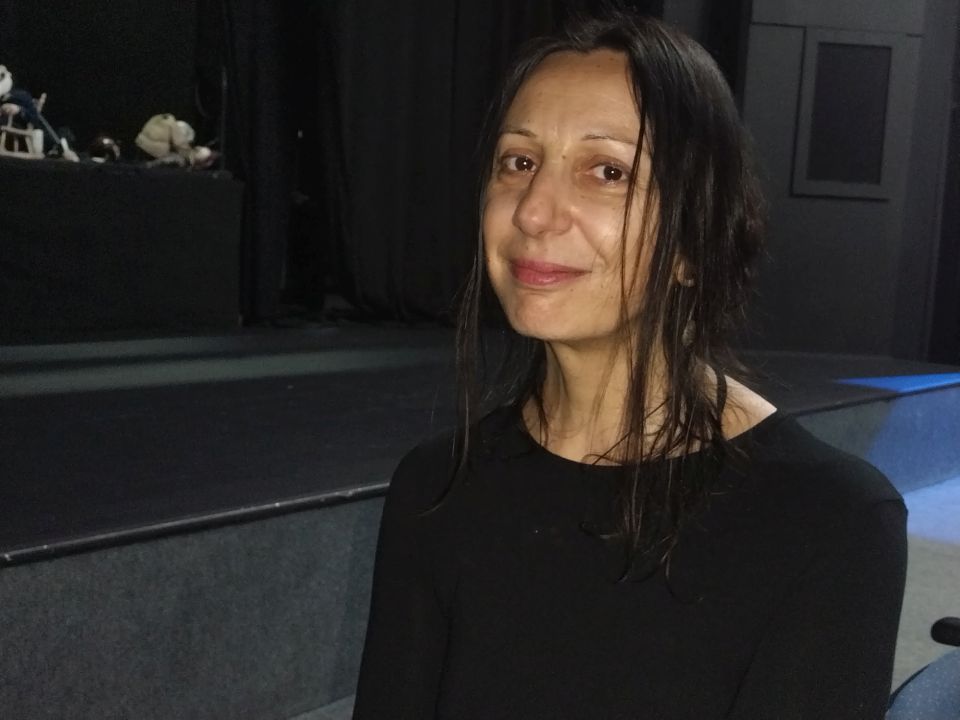Demetra Papada is part of the Greek troupe "Merlin", based in Berlin, which performed "Clowns’ Houses" at the festival. Greek-German artists portrayed the world of alienated people in an authentically black-humored and grotesque, but also poignantly humorous way...
As an artist, are you afraid of the world you talk about in the play?
I am, of course I am, like everyone else, but the theater is a way to talk about those fears openly in order to overcome them. To analyze and share the experience of thinking and the experience of fear, that is important in the theater. We put a lot of personal stuff in there, but it is the story of all of us, both politically and socially in the whole world. All our plays talk about current problems, and we address children and their parents.
What kind of stories are good to tell our children and how should they be told in the theater?
For me personally, it is important that stories for children are true. I make them the same way as for adults. My opinion is that if I like something as an adult and I'm not bored, kids won't be bored either. I treat children as friends. I try to make my theatrical language clear and precise, true. If it is true and acceptable, then I can talk about difficult things, but also dream about a better time. We can all create resistance and solidarity together. In that sense, I am both a realist and a dreamer. This is how you should talk to children.
You are a Greek troupe with an address in Berlin. Is it possible to function as an independent troupe?
It is. We are a completely independent company that does nothing for fun. Everything that we showed in this play, for example, we made from waste, recycled things, which is a way to contribute to a cleaner world. In this way, we can connect ecologically with people's consciousness.
Are you supported by the German government in any way?
We are a completely independent company, but during Covid period, the German government helped all our artists and that was really important, while in Greece, for example, no one helped the artists, which makes my heart ache.
What other plays do you perform?
Recently, we are performing two plays, one for the whole family - "No Man's Land", and the other play called "Drowning" talks about the anxieties of our world and how to deal with them. It also talks about how to live without striking a pose, because people today live a lot in a pose - untrue. And it would be simple just to live, and be...




